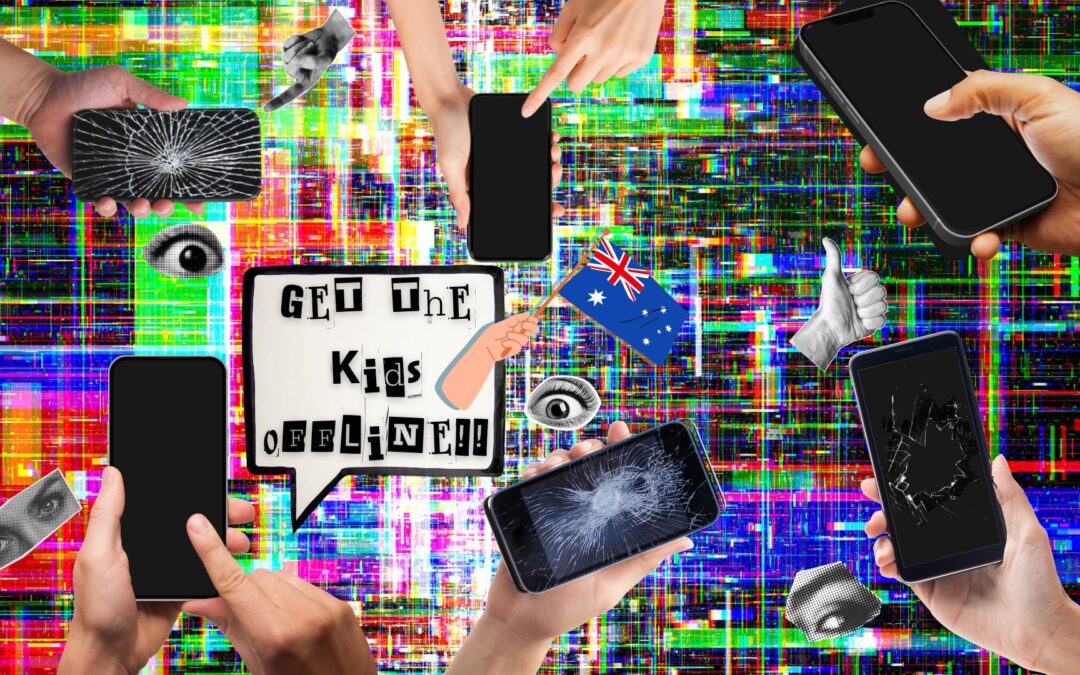We take a look at the first season compared to the latest season seven to see if everything really is soooooo Black Mirror.
How similar has Black Mirror stayed to its original season? We’re taking a look at what has become a more integrated part of our reality from Season One and what could maybe be becoming a bit too close to home from the new Season Seven.
Like Charlie Brooker, the creator himself says, “everything’s gone a bit Black Mirror.” It’s almost a casual adjective to describe things we don’t quite have a grasp on. Your dad’s got a new bluetooth speaker: ‘that’s a bit Black Mirror’. You can turn your lights on with your phone: ‘that’s a bit Black Mirror’. Your dog barks and it sounds a bit like he’s said ‘help’: ‘that’s a bit Black Mirror’. Wireless chargers are not ‘Black Mirror’, you just need to maybe get out the house more. But of course the point of the series and what makes it feel so uncomfortable to watch is the roots it has in our reality and the slight plausibility to each plot. It highlights slightly dystopian themes and shows what could be if they got out of control in our society. However, some of the earlier seasons’ episodes do have a bit less impact now than when they were released, and what we found absolutely horrifying then is now a bit more realistic. We’re not talking about certain prime ministers having certain relationships with certain farmyard animals, but what actually happened years down the line, not just acted as inspiration for the series.
Arguably, even Black Mirror has gone a bit Black mirror, as it’s ventured far from its Channel 4 roots. The massive success, budget and stars to fuel the streaming giant Netflix, compared to the original, slightly gritty production isn’t free from a ‘Back Mirror’ adjective being slapped on it.
So let’s dive in and see what of the first Black Mirror has actually come (kind of) true, and what from the new series is closest to reality.
Season One:
The National Anthem
This is rightly one of the most discussed Black Mirror episodes, it shook audiences back in 2011, and has a similar impact today. Many people have said that the idea of bending politicians’ will to the public’s demands is even more prevalent now than fifteen years ago.
It is has become a such a cultural phenomena to refer to though when it comes to politicians, the impact of first watching it and the dark, genuine horror has arguably not been matched by newer episodes. We’re not collectively watching the new episodes on TV at the same time too, which is another shift since 2011 that arguably weakens the impact of episodes – there’s no collective experience to streaming the new episodes. Similarly to the grim ending of this first episode, the idea of rolling news and everyone tuning into one thing is a bit more alien than it was then.
We’ve definitely been desensitised to the truly disturbing nature of this first episode too, as it’s used so commonly as a pop culture reference… https://x.com/tylrz22/status/1917966374225498176
We’ll leave this here, with a shudder… Mummy Pig Pregnancy – Piggy Propaganda?
Fifteen Million Merits
This episode could be unique in that there we have maybe moved further away from this reality more than towards it. But that doesn’t mean its impact has lessened. Far more people have come forward since the episode’s release to share their experiences of exploitation and manipulation in competition shows. Zoe Alexander spoke out about her X Factor experience, which has since been taken off air. The monopoly that competition shows had over Saturday night television has certainly diminished since this original episode, but arguably the themes of exploitation it explores are still relevant, just on different platforms now. Twitter was still twitter, and the mere age of five when this episode came out, so the social media landscape has changed dramatically, as have the platforms on which people chase fame and success.
The newest series also brings up some similar themes of ‘how far would you go to make money or be famous’ in the Common People episode, which shows this evolution.
The Entire History of You
This episode was only set in the near future, and has somewhat similar themes to the episode Eulogy in the latest season. Everyone has access to memory implants that record absolutely everything they experience and the episode explores the implications of this flawless implant memory collector. Surveillance is not an uncommon theme for Black Mirror, and is arguably the most prevalent when it comes to what is closest to our reality now, but this doesn’t seem as outlandish upon on 2025 rewatch as it did originally. Some may even see this as handy if it was introduced today. Even looking at things like ‘ Snapchat Memories that we have access to now, which was introduced in 2016, five years after this episode was released, but is now such a relied upon and integral part of social media users’ lives and personal history. Compared to the brain implants Black Mirror shows nowadays, a memory device seems quite tame and borderline realistic.
So how does the new season compare to these original episodes?
Season Seven:
Common People
There’s two key themes in Common People: palliative care and life saving healthcare through the lens of exploitative subscription services. Like in Fifteen Million Merits, a desperate husband does what it takes to fund the care that his wife cannot live without (technology that has replaced part of her brain). She is used as a transmitter for advertising, unable to be pregnant, all while. The irony of watching this episode exclusively on Netflix is not lost, and whilst the technology may not seem all that realistic now, the platform on which Mike makes his money certainly is. In 2011, the term OnlyFans would imply that someone was warm, but anti air conditioning, and the notion of the Dum Dummies – Make $tupid Money website (which may or may not be a marketing ploy but clearly exists…) would probably seem completely ridiculous. But it didn’t seem that far from reality, and even had people commenting they wished they could make money on such a website, proving both supply and demand for ‘dummies’.
Plaything
Now this one is a bit crazy, and I don’t think we’re that close to a complete overhaul by tiny sentient video game characters, but the parasocial relationships people have with video games is definitely what makes this realistic. Watching those little Thronglets get crushed to death, albeit on a pixelated screen, tugged at a lot of heart strings. And where people are becoming more and more reliant on technology for interaction, does it even matter that we don’t have tiny sentient playable characters preparing for world domination? Because what we do have is people using ChatGPT for therapy, so maybe we could be going down a pipeline of serving some technology as they give us real interaction. Or was he just on LSD the whole time?
Eulogy
This episode played into a lot of very real trends of not just remembrance, but connection, in what was quite a poignant penultimate episode. It didn’t feel a million miles away that we could have AI help us navigate and piece together our memories. The ‘Nubbin’ technology that was a theme throughout doesn’t seem attainable any time soon, and the VR we have right now is still a tad bulkier. But blurry faces in physically explorable memories doesn’t seem totally crazy. It’s a far bit off, but zooming in on a picture that has clearly used generative AI to construct a face in better quality than the original, is a common practice for us, and that may have seemed entirely crazy back in 2011, as would the idea of meeting your relatives in virtual reality, but this is all doable today.
The budget may have gone up, we may have to be subscribed to a streaming service that the show itself criticises, but Black Mirror can definitely still leave us with a weird unsettled feeling, and if looking at where it started, maybe we should prepare to have our world taken over by loads of tiny digital pets in another fifteen years time.



